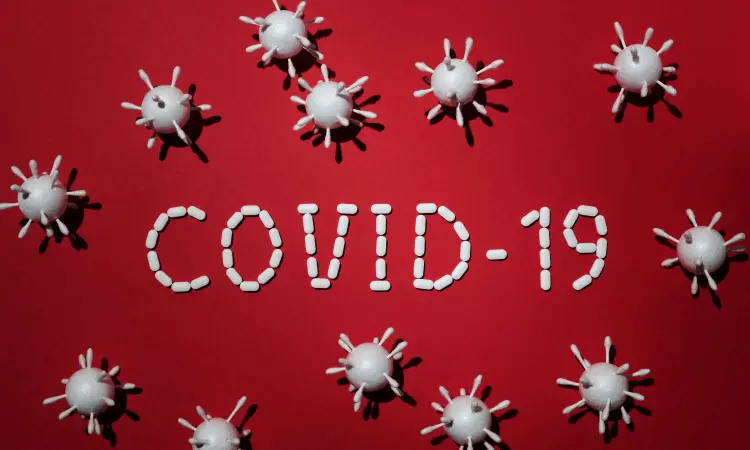- Home
- Medical news & Guidelines
- Anesthesiology
- Cardiology and CTVS
- Critical Care
- Dentistry
- Dermatology
- Diabetes and Endocrinology
- ENT
- Gastroenterology
- Medicine
- Nephrology
- Neurology
- Obstretics-Gynaecology
- Oncology
- Ophthalmology
- Orthopaedics
- Pediatrics-Neonatology
- Psychiatry
- Pulmonology
- Radiology
- Surgery
- Urology
- Laboratory Medicine
- Diet
- Nursing
- Paramedical
- Physiotherapy
- Health news
- Fact Check
- Bone Health Fact Check
- Brain Health Fact Check
- Cancer Related Fact Check
- Child Care Fact Check
- Dental and oral health fact check
- Diabetes and metabolic health fact check
- Diet and Nutrition Fact Check
- Eye and ENT Care Fact Check
- Fitness fact check
- Gut health fact check
- Heart health fact check
- Kidney health fact check
- Medical education fact check
- Men's health fact check
- Respiratory fact check
- Skin and hair care fact check
- Vaccine and Immunization fact check
- Women's health fact check
- AYUSH
- State News
- Andaman and Nicobar Islands
- Andhra Pradesh
- Arunachal Pradesh
- Assam
- Bihar
- Chandigarh
- Chattisgarh
- Dadra and Nagar Haveli
- Daman and Diu
- Delhi
- Goa
- Gujarat
- Haryana
- Himachal Pradesh
- Jammu & Kashmir
- Jharkhand
- Karnataka
- Kerala
- Ladakh
- Lakshadweep
- Madhya Pradesh
- Maharashtra
- Manipur
- Meghalaya
- Mizoram
- Nagaland
- Odisha
- Puducherry
- Punjab
- Rajasthan
- Sikkim
- Tamil Nadu
- Telangana
- Tripura
- Uttar Pradesh
- Uttrakhand
- West Bengal
- Medical Education
- Industry
Liver drug may prevent and lower severity of COVID 19 infection

Researchers have found in a new study that Liver drug ursodeoxycholic acid (UDCA) may prevent and lower severity of COVID 19 infection.Ursodeoxycholic acid inhibits the farnesoid X receptor and may decrease SARS-CoV-2 infections and reduce the severity of COVID-19.
The researchers found that in participants with cirrhosis, UDCA exposure was associated with both a decrease in SARS-CoV-2 infection, and reduction in symptomatic, at least moderate, and severe/critical COVID-19.
The new research has been published in the Journal of Internal Medicine.
The objective of the study was to compare the association between UDCA exposure and SARS-CoV-2 infection, as well as varying severities of COVID-19, in a large national cohort of participants with cirrhosis.
SARS-CoV-2, the virus that causes COVID-19, attaches to a cellular receptor called angiotensin-converting enzyme 2 (ACE2), and activation of the farnesoid X receptor increases ACE2 expression. suggests that a drug that inhibits the farnesoid X receptor and is used to treat liver disease may decrease SARS-CoV-2 infections and reduce the severity of COVID-19.
The study ran from March 2020 to February 2022 and included 3,214 patients with liver disease, half of whom were taking the drug, called ursodeoxycholic acid (UDCA). Patients taking UDCA had 46% lower odds of being infected with SARS-CoV-2. Among patients who developed COVID-19, UDCA use was associated with 46% reduced odds of having symptomatic COVID-19, 49% lower odds of having moderate COVID-19, and 52% lower odds of having severe or critical COVID-19.
“Although our findings are hypothesis generating and supplement data in experimental animal and human models, no recommendations on UDCA use in either the prevention or treatment of COVID-19 can be made in the absence of prospective randomized controlled trials,” the authors wrote.
Reference:
Binu V. John, Dustin Bastaich, Gwilym Webb, Teresa Brevini, Andrew Moon, Raphaella D. Ferreira, Allison M. Chin, David E. Kaplan, Tamar H. Taddei, Marina Serper, Nadim Mahmud, Yangyang Deng, Hann-Hsiang Chao, Fotios Sampaziotis, Bassam Dahman, Published: 05 April 2023 https://doi.org/10.1111/joim.13630
Dr Kamal Kant Kohli-MBBS, DTCD- a chest specialist with more than 30 years of practice and a flair for writing clinical articles, Dr Kamal Kant Kohli joined Medical Dialogues as a Chief Editor of Medical News. Besides writing articles, as an editor, he proofreads and verifies all the medical content published on Medical Dialogues including those coming from journals, studies,medical conferences,guidelines etc. Email: drkohli@medicaldialogues.in. Contact no. 011-43720751


